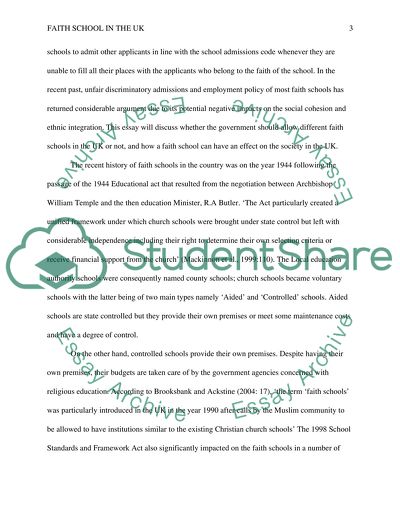Cite this document
(“Faith School in UK Essay Example | Topics and Well Written Essays - 2500 words”, n.d.)
Retrieved from https://studentshare.org/english/1683519-faith-school-in-uk
Retrieved from https://studentshare.org/english/1683519-faith-school-in-uk
(Faith School in UK Essay Example | Topics and Well Written Essays - 2500 Words)
https://studentshare.org/english/1683519-faith-school-in-uk.
https://studentshare.org/english/1683519-faith-school-in-uk.
“Faith School in UK Essay Example | Topics and Well Written Essays - 2500 Words”, n.d. https://studentshare.org/english/1683519-faith-school-in-uk.


